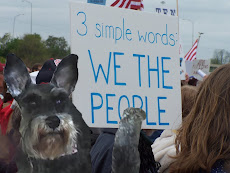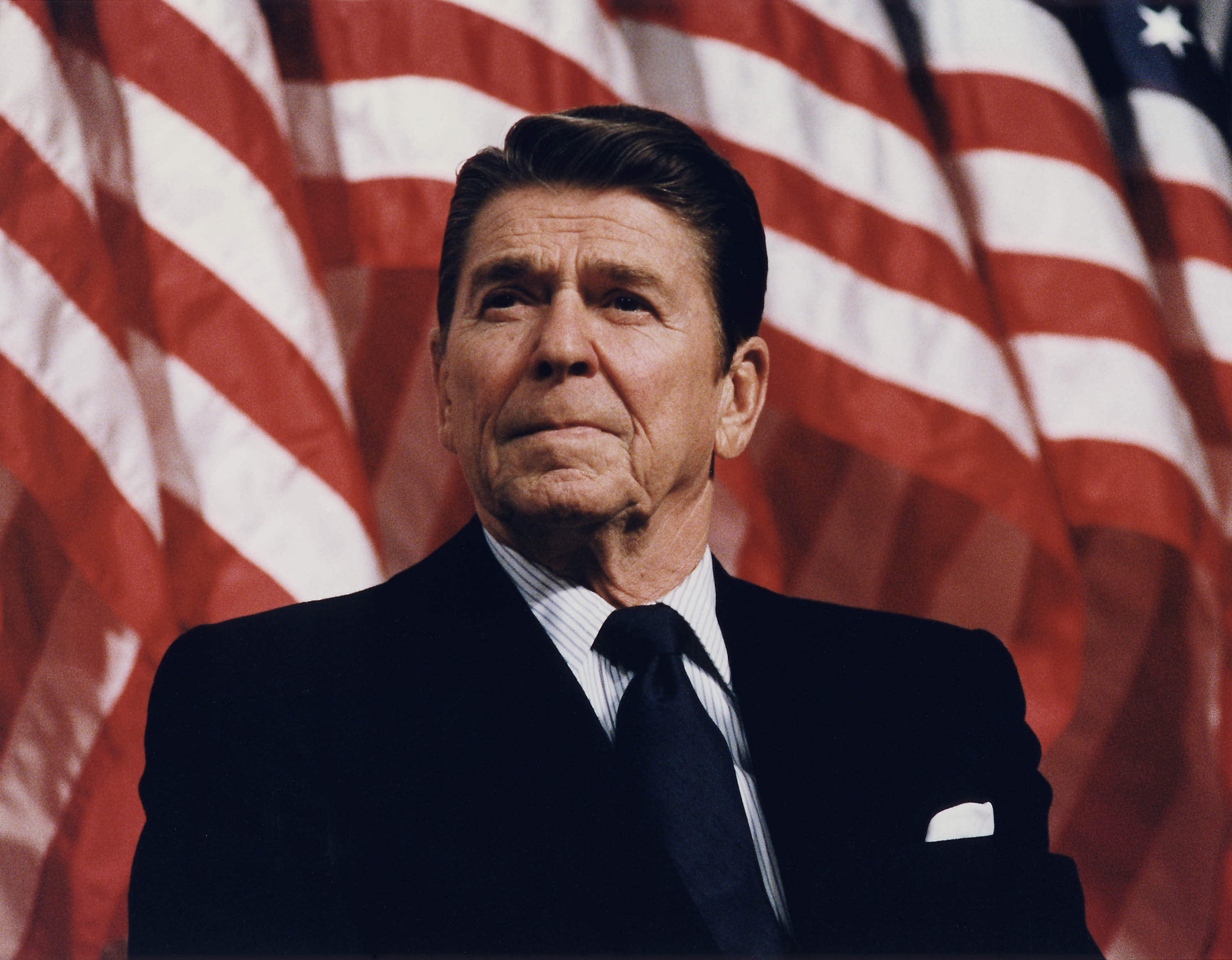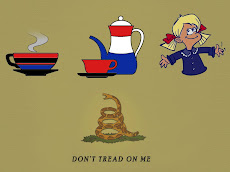(I'm sure in the coming days we will probably hear a tremendous amount of interest in the Electoral College, it occurs every General Election and I believe the framers of the Constitution got it right! VN8)
Every four years, on the Tuesday following the first Monday of November, millions of U.S. citizens go to local voting booths to elect, among other officials, the next president and vice president of their country. Their votes will be recorded and counted, and winners will be declared.
But the results of the popular vote are not guaranteed to stand because the Electoral College has not cast its vote.
For some of you, this might be a bit shocking. You could be thinking, "Whoa, seriously?" But for many of you, you're probably immediately thinking of the 2000 U.S. presidential election -- Gore won the popular vote (more Americans voted for him), but Bush actually won the presidency, because he was awarded the majority of the votes in the Electoral College.
In this article, we'll explain how this interesting system works. How is it that a candidate could win more votes overall and yet not be elected? What would happen if there were a tie in the Electoral College? Who then would elect the president?
You will find out about the past elections that weren't decided on Election Day but weeks later, when the Electoral College met, and some that weren't decided until months later. You'll also learn about the strange election of the first son of a former president to win the presidency.
History of the Electoral College
The Electoral College is a controversial mechanism of presidential elections that was created by the framers of the U.S. Constitution as a compromise for the presidential election process. At the time, some politicians believed a purely popular election was too reckless, while others objected to giving Congress the power to select the president. The compromise was to set up an Electoral College system that allowed voters to vote for electors, who would then cast their votes for candidates, a system described in Article II, section 1 of the Constitution.
Selecting Electors
If you're wondering how someone becomes an elector, it turns out it's not the exact same process across the board. It can actually differ from state to state. In general, though, the two most common ways are:
* The elector is nominated by his or her state party committee (perhaps to reward many years of service to the party).
* The elector "campaigns" for a spot and the decision is made during a vote held at the state's party convention.
There's the how, but what about the "what" -- as in, "What are the required qualifications of an elector?" There really aren't any. According to the National Archives and Records (NARA) Web site, "the U.S. Constitution contains very few provisions relating to the qualifications of electors." While the constitution doesn't dictate what an elector should know or be able to do, it does suggest who or what an elector cannot be:
* He or she cannot be a Representative or Senator
* He or she cannot be a high-ranking U.S. official in a position of "trust or profit"
* He or she cannot be someone who has "engaged in insurrection or rebellion" against the U.S.
Now, what about the "who?" Who is it that gets nominated or voted in and assigned to the post?
Usually, electors are people who are highly politically active in their party (be it Democrat, Green, Libertarian, Republican ...) or connected somehow to the political arena, such as: activists, party leaders, elected officials of the state and even people who have ties (political and/or personal) to the Presidential candidates, themselves.

So, we've covered the how, what and who -- but that's not all! There's still faithless electors, winner-takes-all and the district system to consider...
"Faithless Electors"
It turns out there is no federal law that requires an elector to vote according to their pledge (to their respective party). And so, more than a few electors have cast their votes without following the popular vote or their party. These electors are called "faithless electors."
In response to these faithless electors' actions, several states have created laws to enforce an elector's pledge to his or her party vote or the popular vote. Some states even go the extra step to assess a misdemeanor charge and a fine to such actions. For example, the state of North Carolina charges a fine of $10,000 to faithless electors.
It's important to note, that although these states have created these laws, a large number of scholars believe that such state-level laws hold no true bearing and would not survive constitutional challenge.
Electoral College Voting
The final electors for each state are voted on by the state's residents on voting day. In many states, the electors' names are printed on the ballots -- where those names "sit" depends on the state. For example, the electors could be listed directly under the presidential candidates' names (Democrats with the Democratic nominee, Libertarians with the Libertarian nominee, Republicans with the Republican nominee and so on) or simply grouped by party somewhere else on the ballot. And, of course, the names might not even be listed at all. Essentially, it is the electors who get voted "in" who end up casting the "real" vote. Hold on, it seems like the last two sentences don't go together, "How can someone be voted "in" if they're not even on a ballot?" Consider this information from the Department of the Secretary of State for North Carolina:
Under North Carolina General Statute § 163-209, the names of candidates for electors of President and Vice-President nominated by any political party recognized in this State under North Carolina General Statute § 163-96 or by any unaffiliated candidate for President of the United States who has qualified to have his name printed on the general election ballot under North Carolina General Statute § 163-122 must be filed with the Secretary of State. A vote for the candidates for President and Vice-President named on the ballot is a vote for the electors of the party or unaffiliated candidate by which those candidates for elector were nominated and whose names have been filed with the Secretary of State.
The key is this part, "A vote for the candidates for President and Vice-President named on the ballot is a vote for the electors..." This is the case for 48 states -- it's known as the "winner-take-all system." The other system, known as the "district system," is observed in both Maine and Nebraska. In these states, two electors' votes are made based on the candidate who received the most votes statewide. The remaining electoral votes go by congressional districts, awarding the vote to the candidate who received the most votes in each district.
Now, in regard to "winner-take-all" states, keep in mind what we said in the last section: Most of the time, electors cast their votes for the candidate who has received the most votes in that particular state. However, there have been times when electors have voted contrary to the people's decision, which is entirely legal. Although if you do vote against your party, you'll most likely be simultaneously forfeiting your post as elector and you may even incur a hefty fine -- see the sidebar on faithless electors.
Distribution of 2008 Electoral Votes
State 2008
Alabama 9
Alaska 3
Arizona 10
Arkansas 6
California 55
Colorado 9
Connecticut 7
Delaware 3
D.C. 3
Florida 27
Georgia 15
Hawaii 4
Idaho 4
Illinois 21
Indiana 11
Iowa 7
Kansas 6
Kentucky 8
Louisiana 9
Maine 4
Maryland 10
Massachusetts 12
Michigan 17
Minnesota 10
Mississippi 6
Missouri 11
Montana 3
Nebraska 5
Nevada 5
New Hampshire 4
New Jersey 15
New Mexico 5
New York 31
North Carolina 15
North Dakota 3
Ohio 20
Oklahoma 7
Oregon 7
Pennsylvania 21
Rhode Island 4
South Carolina 8
South Dakota 3
Tennessee 11
Texas 34
Utah 5
Vermont 3
Virginia 13
Washington 11
West Virginia 5
Wisconsin 10
Wyoming 3
Under the electoral college system, each state is assigned a specific number of votes that is proportional to its population, so that each state's power is representative of its population. These figures will most likely change after the 2010 Census.
Electoral College Results
In most presidential elections, a candidate who wins the popular vote will also receive the majority of the electoral votes, but this is not always the case. There have been four presidents who have won an election with fewer popular votes than their opponent but more electoral votes.
Here are the four elections when the candidate who led the popular vote did not win the office:
* 1824: John Quincy Adams, the son of former President John Adams, received more than 38,000 fewer votes than Andrew Jackson, but neither candidate won a majority of the Electoral College. Adams was awarded the presidency when the election was thrown to the House of Representatives.
* 1876: Nearly unanimous support from small states gave Rutherford B. Hayes a one-vote margin in the Electoral College, despite the fact that he lost the popular vote to Samuel J. Tilden by 264,000 votes. Hayes carried five out of the six smallest states (excluding Delaware). These five states plus Colorado gave Hayes 22 electoral votes with only 109,000 popular votes. At the time, Colorado had been just been admitted to the Union and decided to appoint electors instead of holding elections. So, Hayes won Colorado's three electoral votes with zero popular votes. It was the only time in U.S. history that small state support has decided an election.
* 1888: Benjamin Harrison lost the popular vote by 95,713 votes to Grover Cleveland, but won the electoral vote by 65. In this instance, some say the Electoral College worked the way it is designed to work by preventing a candidate from winning an election based on support from one region of the country. The South overwhelmingly supported Cleveland, and he won by more than 425,000 votes in six southern states. However, in the rest of the country he lost by more than 300,000 votes.
* In 2000, Al Gore received 50,992,335 votes nationwide and George W. Bush received 50,455,156 votes. After Bush was awarded the state of Florida, he had a total of 271 electoral votes, which beat Gore's 266 electoral votes.
Today, a candidate must receive 270 of the 538 votes to win the election. In cases where no candidate wins a majority of electoral votes, the decision is thrown to the House of Representatives by virtue of the 12th Amendment. The House then selects the president by majority vote with each state delegation receiving one vote to cast for the three candidates who received the most electoral votes.
Here are the two elections that were decided by the House of Representatives:
* 1801: Thomas Jefferson and Aaron Burr, both Democrat-Republicans, received the same number of electoral votes, despite the fact that Burr was running as a vice presidential candidate, not for the presidency. Following 36 successive votes in the House, Jefferson was finally elected president.
* 1825: As mentioned above, Andrew Jackson received a majority of the popular vote over John Quincy Adams, but neither man received a 131-vote majority of electoral votes needed at the time to claim the presidency. Adams won the House vote on the first ballot.
The Electoral College Debate
Proponents of the Electoral College say that the system served its purpose in the elections we talked about, despite the fact that the candidate who won the popular vote didn't always win the election. The Electoral College is a block, or weighed, voting system that is designed to give more power to the states with more votes, but allows for small states to swing an election, as happened in 1876. Under this system, each state is assigned a specific number of votes that is proportional to its population, so that each state's power is representative of its population. So, while winning the popular vote may not ensure a candidate's victory, a candidate must gain popular support of a particular state to win the votes in that state. The goal of any candidate is to put together the right combination of states that will give him or her 270 electoral votes.






5 comments:
On it's present course and speed, it means predictable large urban centers will determine who wins the Presidency. I wouldn't call it a college in today's terms. More like a "middle school".
I'm all for keeping the electoral college. Otherwise, as OM1C points out, no one inside of fifty miles of either coast need bother voting. Hey, Cynthia McKinney for Pres!
BTW: The made up controversy over the 2000 Florida vote masked the fact that Gore actually lost because he failed to carry his home state of Tennessee.
Lee: Who's she running against? Current field? Got my vote!
Lee, pretty bad when you can't even carry your "home" state, but damn I'm so glad VP Gore invented the internet! VN8
OM1C, if I find out you voted for Crazy Cynthia, I'm going to be afraid, very afraid! LOL VN8
Post a Comment